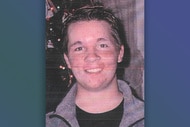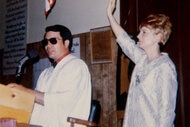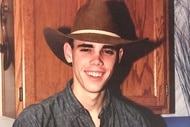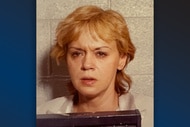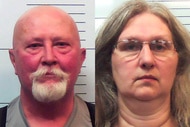Create a free profile to get unlimited access to exclusive videos, breaking news, sweepstakes, and more!
Satanic Panic And Murder In The South: How The West Memphis Three Influenced 'True Detective'
The three Arkansas teens interrogated in "True Detective" bear a resemblance to Damien Echols, Jason Baldwin, and Jessie Misskelley — the trio was arrested in the early '90s in connection with a triple-murder in a small Arkansas town.

While crime drama television series "True Detective" may not be true crime exactly, the new series makes some pretty strong parallels to a very real, very infamous crime story: The West Memphis Three.
Season three of the HBO show focuses on a case in the fictional town of West Finger, Arkansas. Two children go missing while out on a bike ride in the 1980s, sparking an intense journey that will span a 40 year-period, according to the season’s trailer, especially after one of the victims is found in a wooded part of town called Devil's Den State Park.
The opening scene of the first episode, which features overhead shots of Devil’s Den, bears an uncanny resemblance to the 1996 documentary “Paradise Lost: The Child Murders at Robin Hood Hills,” which opens with aerial footage of the wooded area of Robin Hood Hills in West Memphis, Arkansas, where three 8-year-old boys were found brutally murdered.
The film details the case of a trio of a teenagers, dubbed the "West Memphis Three," who were convicted, and later released, for the murders of the children — Steve "Stevie" Branch, Christopher Byers, and Michael Moore— who were discovered on May 6, 1993.
Much like in Season 3 of "True Detective," the three boys had gone for a bike ride. They never returned home for dinner.
Later they were found hogtied by their own shoelaces. They had been sexually mutilated and physically assaulted before being killed.
Not long after, the three teens were arrested — Damien Echols, then 18, Jason Baldwin, 16, and Jessie Misskelley, 17. The three were referred to as outcasts who wore black and were into metal music.
Before the conviction, their case became something of a media frenzy because of the trial’s focus on Echol’s interest in paganism, as shown in “Paradise Lost: The Child Murders at Robin Hood Hills.” The case has long been referred to as one that was part of the wave of "Satanic Panic," a fear that Satanism would infect society during the 1980s and 1990s.
“Satanic Panic” appears to play a large role in the new season of “True Detective.” The three boys accused of abducting the two bike-riding children look similar to the “West Memphis Three,” and they have similar taste in style and music, too.
One of the boys in the show is forced to defend his Black Sabbath T-shirt when an investigator asks him, “Is it Satanic?” in the show’s first episode.
What will happen in the show remains a mystery to the general public but as for the true story of the “West Memphis Three,” there was some closure. The three men were released from prison after entering an Alford plea in 2011 after nearly two decades of imprisonment.
The Aflord plea allows people to plead guilty, even while claiming innocence, in order to avoid greater punishment. That means that, technically, their convictions were never overturned.
And as for who really killed the three boys? No other arrests have been made. Maybe "True Detective" will offer more answers to its fictional case.
[Photos: West Memphis Police]

